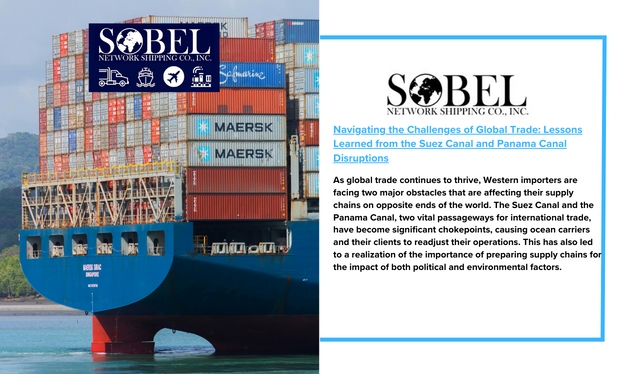As global trade continues to thrive, Western importers are facing two major obstacles that are affecting their supply chains on opposite ends of the world. The Suez Canal and the Panama Canal, two vital passageways for international trade, have become significant chokepoints, causing ocean carriers and their clients to readjust their operations. This has also led to a realization of the importance of preparing supply chains for the impact of both political and environmental factors.
In recent months, the Suez Canal and the Panama Canal have both experienced challenges that have disrupted their usual flow of traffic. A severe drought in the region has resulted in a significant decrease in the number of crossings at the Panama Canal, leading to longer wait times and higher tolls. Meanwhile, the Suez Canal is also facing a decline in traffic due to ongoing conflicts in Yemen, where rebel groups have been targeting passing vessels. As a result, carriers are now taking longer routes around Africa to avoid the troubled waters of the canal.
For Western importers, these disruptions have posed significant challenges, but many have been able to mitigate the impact by implementing lessons learned from the supply chain chaos caused by the pandemic. Companies like IKEA stores owner Ingka Group have been able to weather the delays by maintaining healthy levels of inventory in their warehouses. As a result, they have been able to absorb the delays without experiencing major disruptions to their operations.
This recent experience has emphasized the need for supply chains to be adaptable and resilient in the face of unexpected challenges. The pandemic has served as a wake-up call for many businesses, and they are now taking proactive measures to prepare for future disruptions. This includes diversifying shipping routes, building up inventory levels, and investing in technology that can provide real-time tracking and visibility of shipments.
In conclusion, the challenges faced by Western importers due to the Suez Canal and Panama Canal disruptions highlight the importance of having robust supply chains that can withstand unexpected events. As global trade continues to grow, it is crucial for businesses to be prepared for any potential disruptions, whether they are caused by geopolitical conflicts or environmental factors. By implementing proactive measures and learning from past experiences, companies can ensure that their supply chains remain resilient and continue to thrive in the face of adversity.


